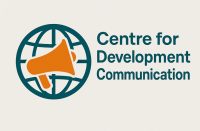Mr. Salisu Iro Isansi, a federal lawmaker from Katsina state and the Universal Basic Education (UBEC) has constructed a mini ICT centre for N100 million as a constituency project.
The ICT that had Cool Choice Nigeria Limited as its contractor, was awarded by the Universal Basic Education Commission and was supervised by the Department of Physical Planning of UBEC.
Mr. Isansi, a federal lawmaker in the House of Representatives, had in 2020 using the UBEC, nominated the construction of ICT centre in Katsina Central as his constituency project.
A project the federal government had in 2020 allocated the sum of N100 million while UBEC and the lawmaker had since carried out the project.
Tracka, a public accountability organization that was in the community to inspect the project, says it has been completed but not put into use.
Checks by MAWA FOUNDATION show that Cool Choice Nigeria Limited, a company that was awarded the construction of Katsina ICT centre has no traceable online or physical address.
Mr. Idris Kenaan, a civil engineer told MAWA N10 million is too much amount to build an ICT centre and that includes payment for labour and consultancy fees.
Also, Mr. David Ifeanyi, a computer engineer, and ICT expert, who had handled contracts for equipping ICT centres, told MAWA, with N5 million, you can supply all computers, equipment and internet access needed to operate the centre.
The none traceable of Cool Choice Nigeria Limited to any known address or ownership shows the Katsina ICT centre may have been awarded to a ghost or a none existing company.
Worse still, the UBEC and Katsina lawmaker did not give a breakdown of how they arrived at constructing a mini ICT centre for a whopping N100 million.
Constituency projects are nominated by the lawmakers for the needs of their constituents and recommend same to the executive during budgeting; this will help to improve the living condition of the people in their constituents through building local infrastructures.
However, Nigerian experience has shown that Lawmakers do not execute constituency projects as they appear in the national budget, and getting them to account for monies approved for such intervention is always difficult.
And, often, community residents are not aware such monies have been given to their representatives, and that makes accountability very difficult.
